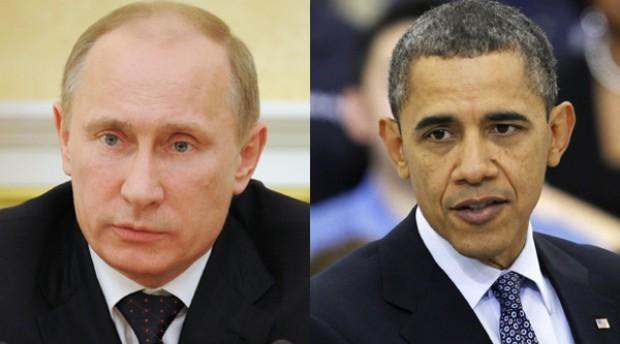No Nuclear Benefit for Iran in Growing Russia-US Tension

-The era of the Cold War has ended; an era when the Soviet Union showed its ideological behavior in its relations with the US and some countries took advantage of the existing contradiction between Moscow and Washington.
-This is while nothing remains from that Soviet Union and Russia today pursues no ideological behavior. Today, Russia acts globally and shows a global behavior, thus, it has been transformed into a country which seeks pragmatism and defines its behavior based on its national interests.
-On this ground, by leaving the ideological viewpoints of the former Soviet Union and following a pragmatic approach, Russia will safeguard its interests with a turn in its policies whenever it feels that its interests are threatened by a contradiction in its relations with the West.
-Experience has shown that even during the climax of tensions between Moscow and Washington, the Russians have never rendered any concessions to Iran which would threaten their interests with the West.
-An example of this policy is the war in Georgia and South Ossetia in 2008 when, during the peak of its conflicts with the West, Russia did not change its position with regard to Iran’s nuclear issue. Even in 2010, when relations between Washington and Moscow were faced with a reset, Medvedev, Russia’s President at the time, cancelled the contract for the sale of S300 missiles to Iran.
-With regard to the crisis in Syria, Iran and Russia only have common interests and they have not reached unity.
-In the Syrian crisis, neither did Iran follow Russia’s policies nor did Russia follow Iran’s policies. Iran’s support of Assad’s government is within the framework of a definition which Iran has of its national interests and considers this country as the forefront of the resistance front against the threat of Israel against Iran and the regional countries.
-Therefore, this view which states that the West has created the crisis in Ukraine to force Russia to review its policies in Syria cannot be a logical justification of Iran’s alignment with Russia’s policies in Ukraine. This is while the crisis in Ukraine was not created by the US and the EU, and they only took advantage of this crisis for their own interests against Russia.
-The more important issue with regard to the views of some analysts about Iran’s closeness to Russia during the Ukraine crisis in order to fight against the West’s policies is whether Iran should move closer to Russia or whether Russia should come to Iran. This is while Russia, in principle, needs Iran’s support in this crisis.
-Either case would be against the important principle of “neither East nor West” in Iran’s constitution which considers Iran’s policy an independent one. On the basis of this policy, Iran has always attempted to place itself independently of political games and international conflicts and challenges, as was the case during the US invasion of Iraq in 1991 in response to Kuwait’s occupation by the Baathist army of Iraq when Iran pursued a neutral policy based on its national interests.
-China, as the second economic power of the world and a member of the Shanghai Pact and an ally of Russia has officially stated that it will pursue a neutral policy in the crisis in Ukraine and the tension between Russia and the West. On this ground, there is no need for Iran to state a supportive position of either of the conflicted sides.
-Growing tensions in relations between the two countries and even the increasing possibility of a war – which there is little possibility of- will have more damages than benefits for Iran’s nuclear issue.
- After five years of negotiations with the P5+1, Iran was finally able to reach a preliminary agreement last November to resolve the nuclear issue and even pave the way to reach a comprehensive agreement with the other party. But if under these conditions, the tension in the relations between Russia and the US and the European countries increases, negotiation to reach a comprehensive agreement will probably be faced with difficulties.
-On this ground and under conditions where Iran is faced with sanctions and seeks solutions to end these oppressive and illegal sanctions, any delay in holding nuclear negotiations would not be to Iran’s benefit.
-The Geneva Agreement has, hitherto, advanced and possibly in the near future and if the other party shows its good will one could hope that the two sides would reach a comprehensive agreement, thus, any new solution would only delay reaching an agreement.

